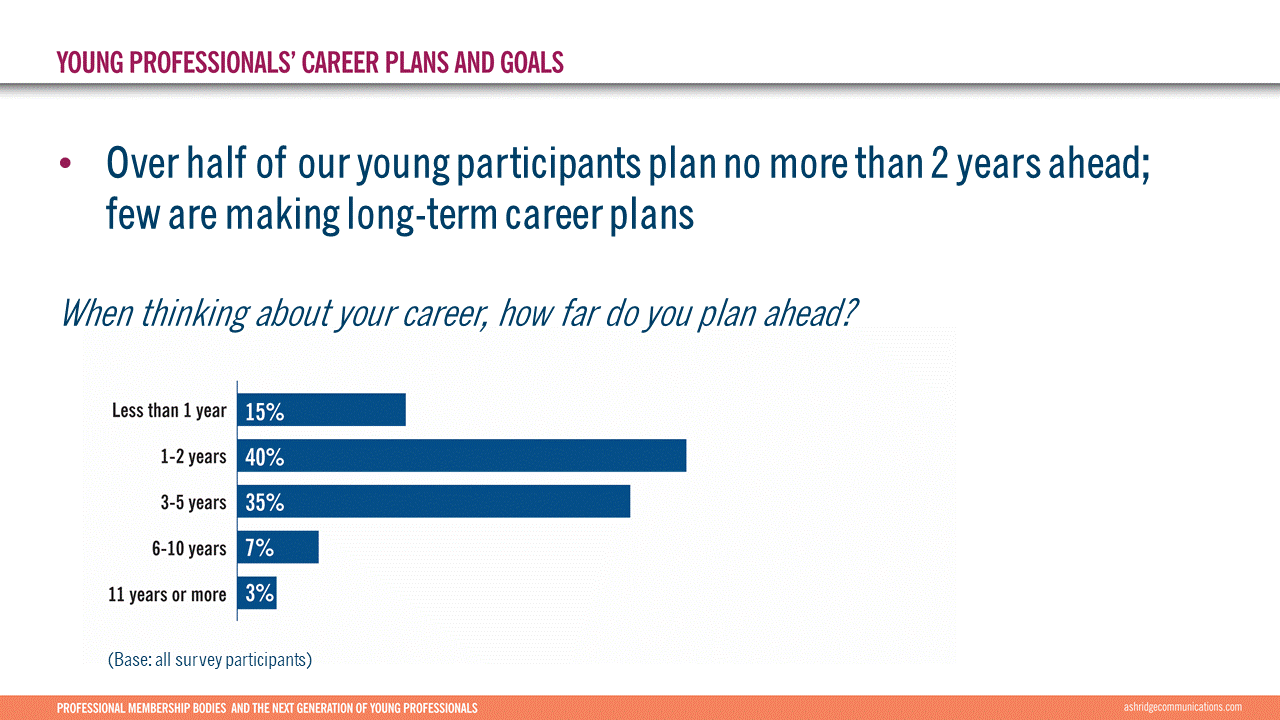The relevance of membership to younger generations
 Each year, we conduct a sector study to shed some light on an issue or question of interest. In 2018, we investigated the awareness and understanding of the role and services of professional membership bodies - and the value of membership - with an audience of 1900 ‘young professionals’: students in the last two years of undergrad study, post-grad students and early-career graduates.
Each year, we conduct a sector study to shed some light on an issue or question of interest. In 2018, we investigated the awareness and understanding of the role and services of professional membership bodies - and the value of membership - with an audience of 1900 ‘young professionals’: students in the last two years of undergrad study, post-grad students and early-career graduates.
We presented some of our findings at the memcom 2018 conference.
Maintaining relevance
It was great to hear other speakers at the conference also talking about the relevance of membership to younger generations: Sarah Allen, former Director of Membership & Communications at the Royal College of Surgeons of Edinburgh, presented the outcome of strategic work to improve engagement with younger surgeons and trainees focused on branding, communications and new networks.
My highlight from Sarah’s session: unsurprisingly, the younger generation of members want their voice to be heard. Perhaps not through the traditional, long-standing governance structures that exist in a College with around 500 years of history, but through other channels instead. So listen. And respond.
Creating a great customer experience
From outside the membership sector, Mark Sherwin, MD of Accenture Interactive, demonstrated how technology can offer a seamless customer experience. He opened with a personal account of his interaction with Omlet. Mark bought a chicken coop and the requisite hens to lay the number of eggs his family wanted, purchased feed and arranged installation of the coop - along with a personal lesson on chicken care - from his laptop in just a few clicks. Mark reported that the chickens were possibly 3 or 4 times more expensive than if he had sourced them elsewhere, but the convenience of the whole transaction had him hooked.
He also used the example of Spotify and Uber, where linked accounts mean that a taxi’s audio system automatically detects and streams a passenger’s playlist. Unfortunately for Uber drivers, this has led to a plethora of competitive playlists named ‘how to annoy your taxi driver’…
My take-home from Mark’s session: If customers are having such positive experiences with the brands they encounter in their everyday lives, then a membership body with a clunky website, inaccessible CPD tool or 6-page membership renewal form is going to easily frustrate and irritate. The membership sector would certainly struggle to finance the types of technology that Mark highlighted but organisations should always be on the lookout for ways they can improve members’ interactions.
Research snippets
-
When thinking about their careers, over half of our study participants plan no more than 2 years ahead.
-
And 90% of undergraduates in their final year have made the decision about where to go next: either to go into work (52%) or continue in further study (37%).
These results and more are presented in a full report of the research, which also summarises some of the recent changes in the education and workplace environment that may impact upon the career choices of the current generation. If you’d like to read the research findings all at once, rather than in snippets, you can buy the report – details here.

